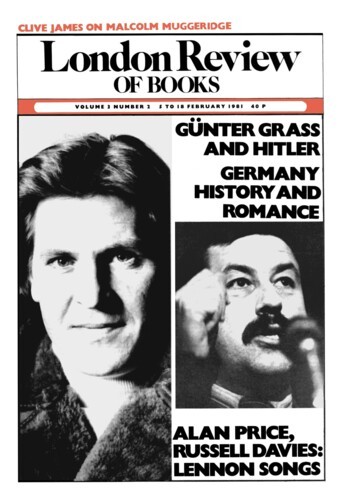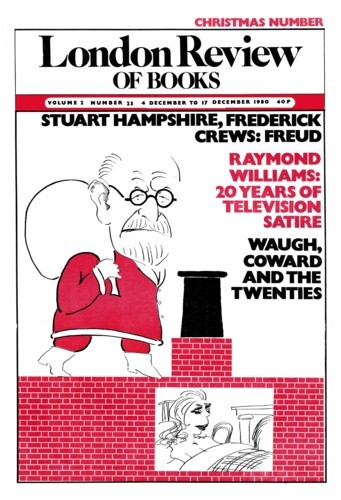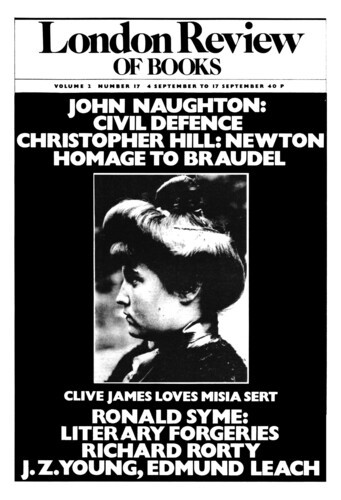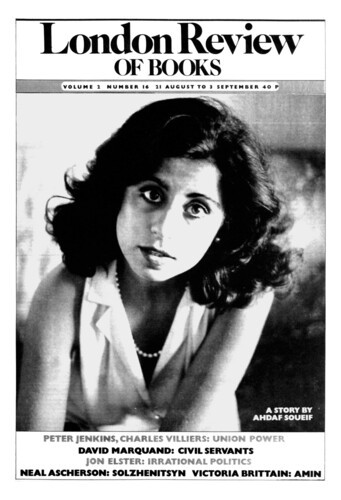Malcolm and the Masses
Clive James, 5 February 1981
Even those of us who don’t know Malcolm Muggeridge personally can be certain that the charm to which his friends attest would quickly enslave us too, should we be exposed to it. One would probably soon give up quarrelling with him. But his public persona invites quarrel and not much else. He is not really very illuminating even when he is right. As a writer and television performer he has always had the virtue of embodying the questioning spirit, but he has been even more valuable as an example of what happens to the questioning spirit when it is too easily satisfied with its own answers. Self-regard makes him untrustworthy even in the pursuit of truth. Life has been brighter for his having been around, but for a long time his explanations have not done much more than add to the general confusion. From one who makes so much noise about being hard to fool it is hard to take being fooled further. There he is waiting for you up the garden path, all set to lead you on instead of back.




